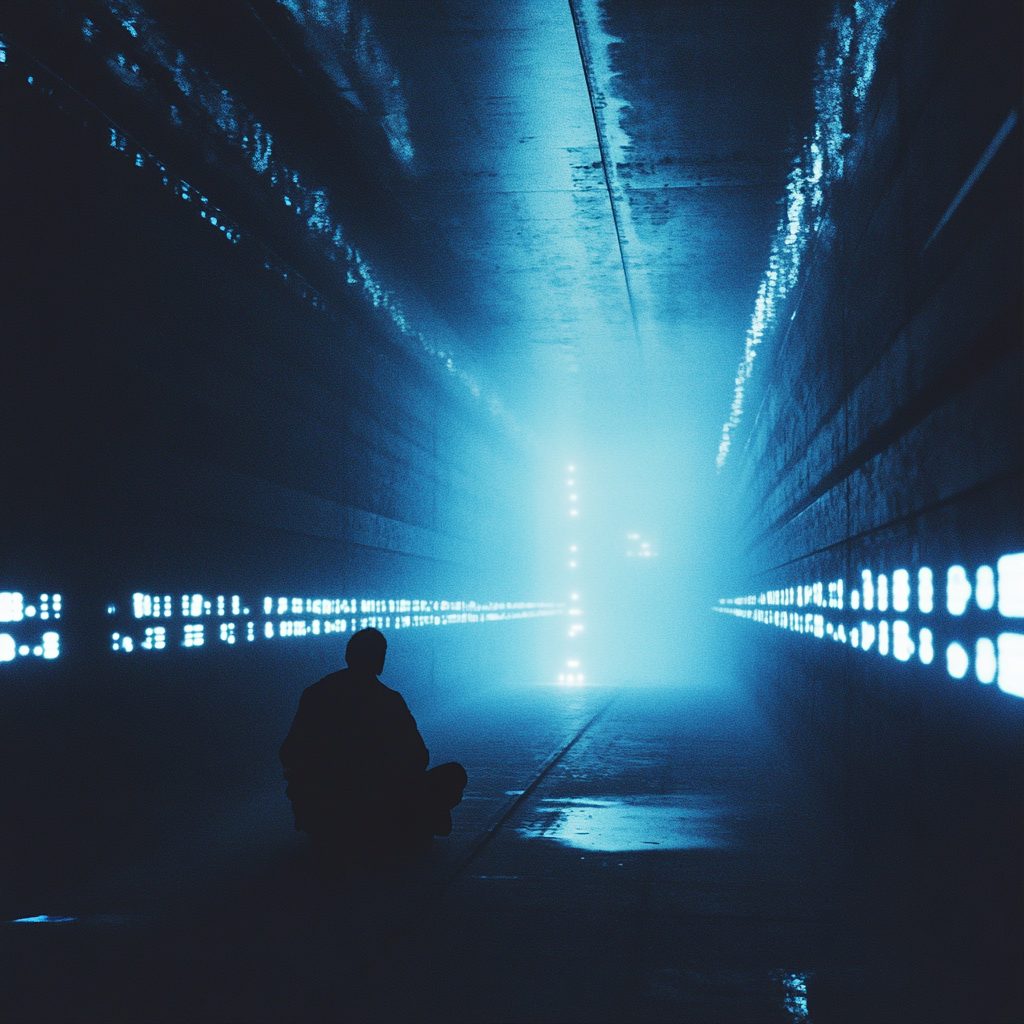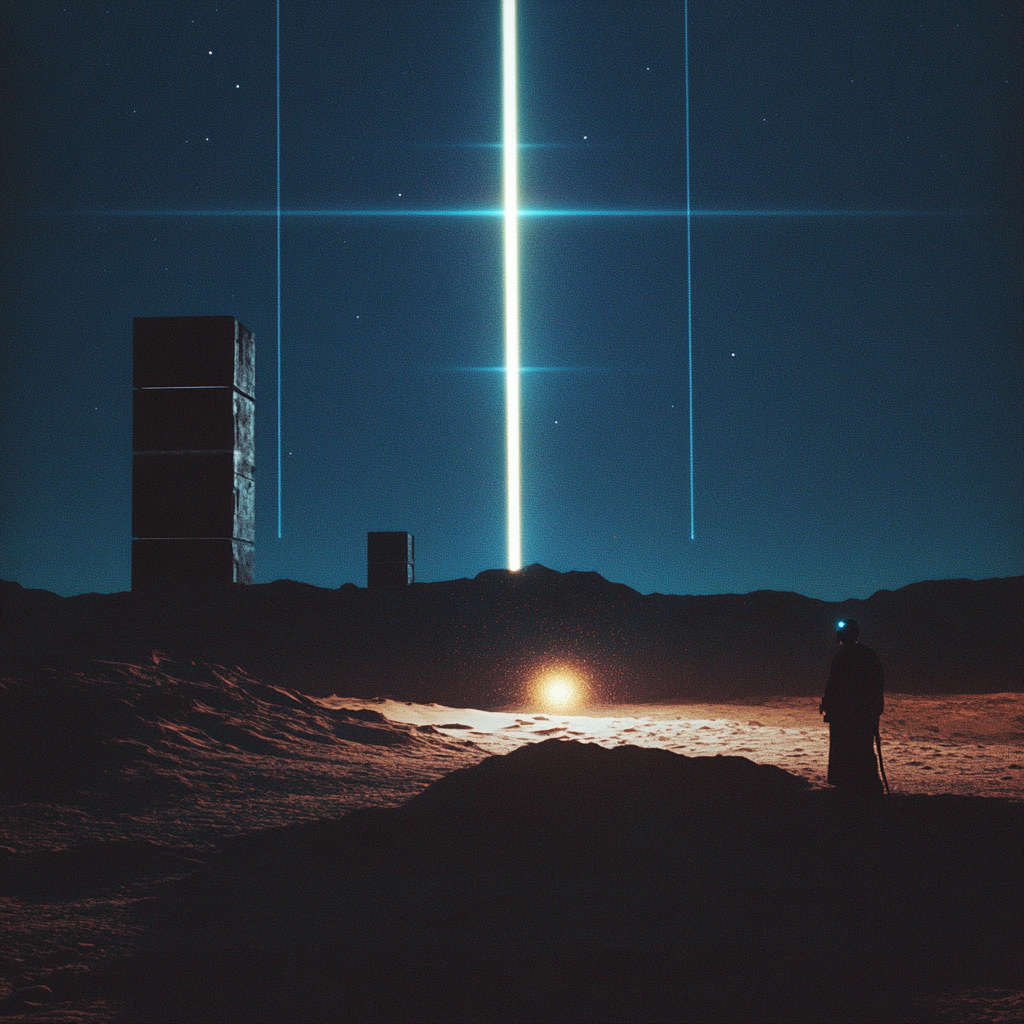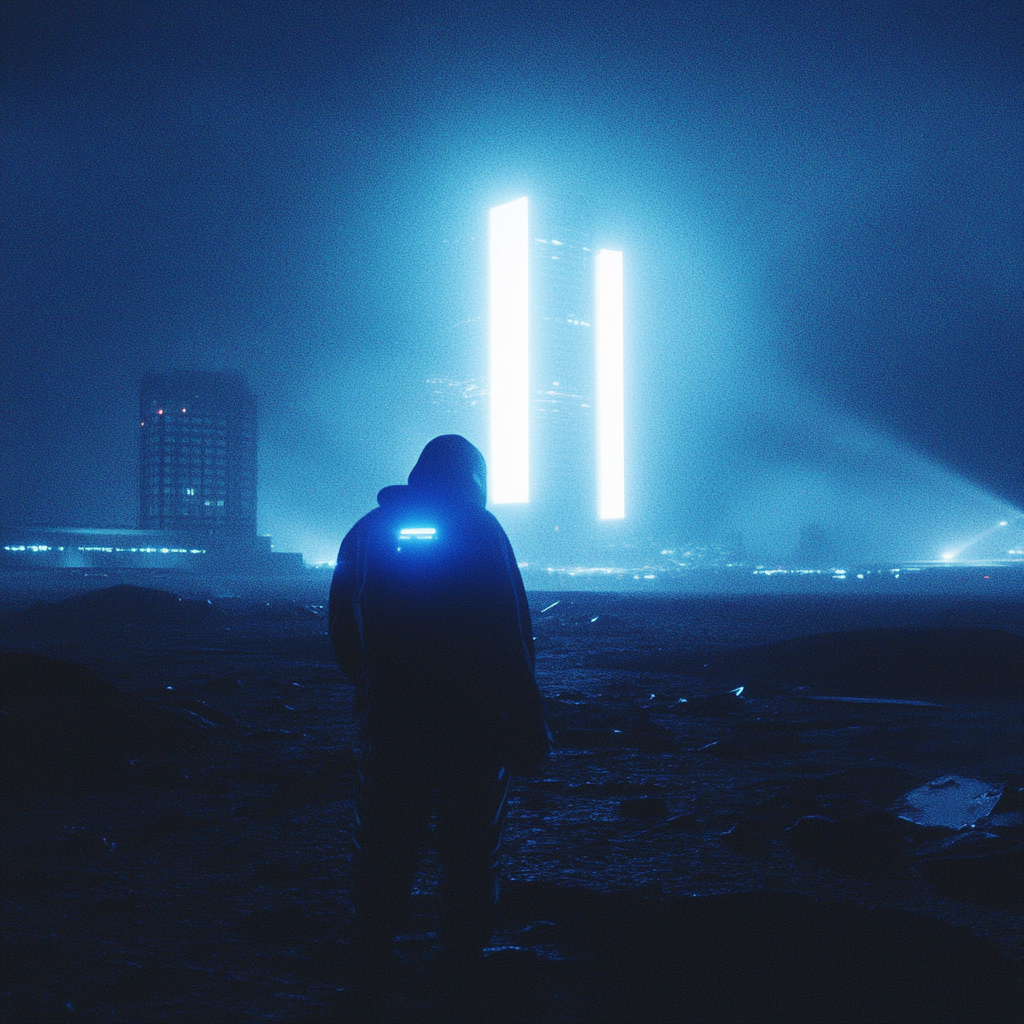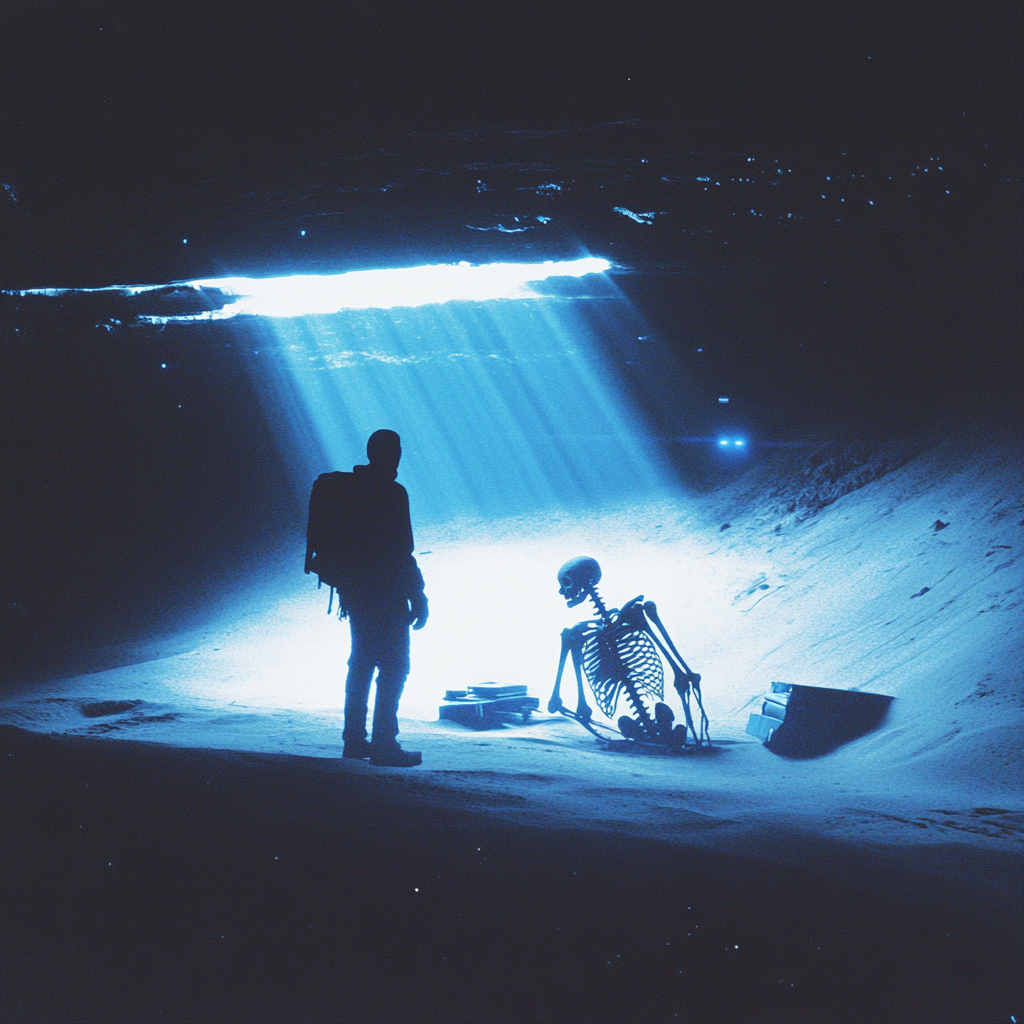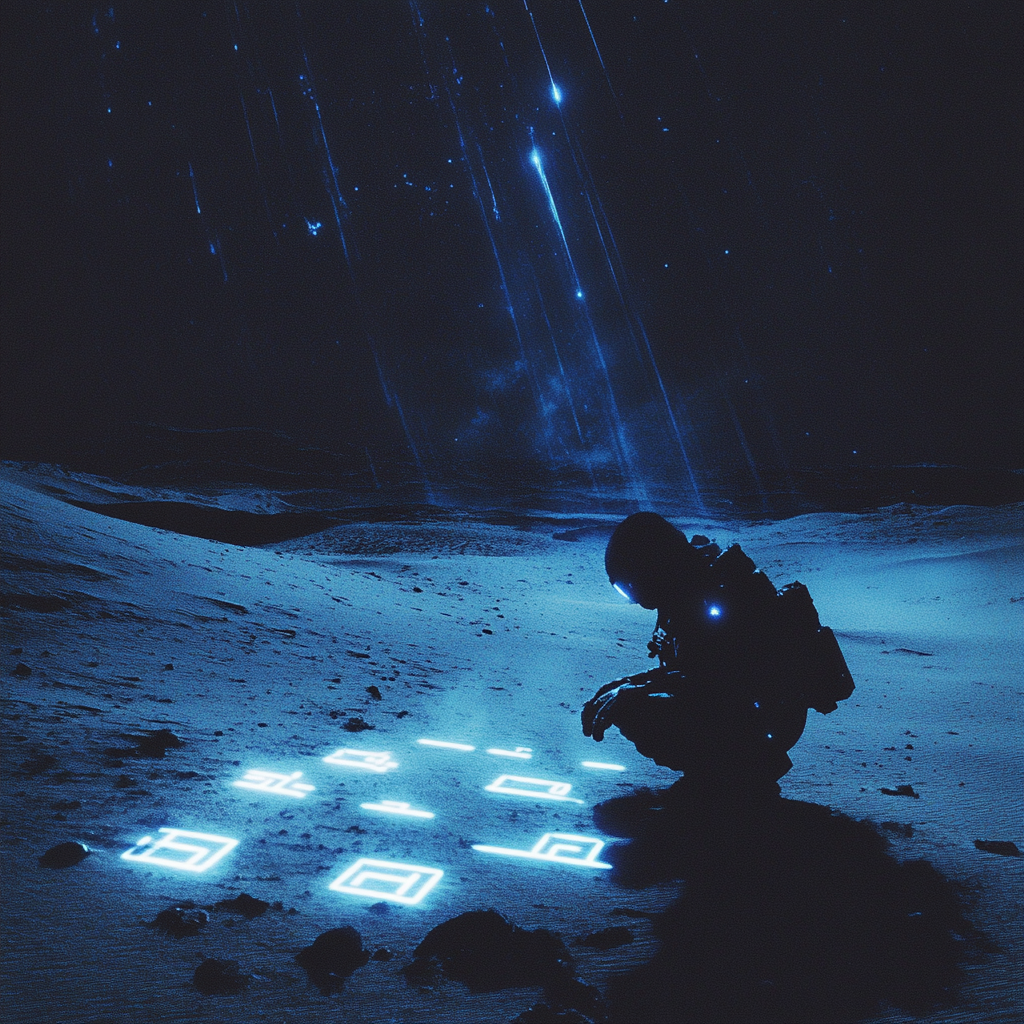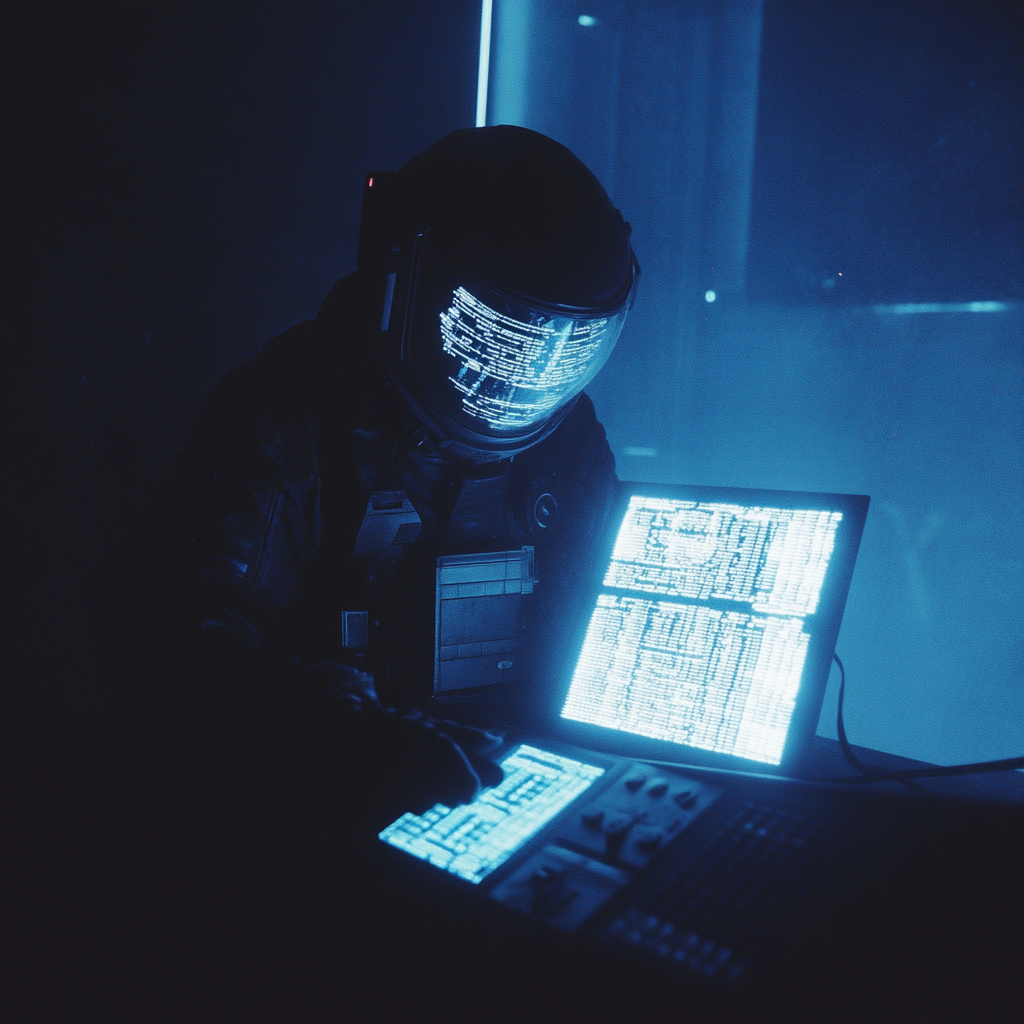The city of Varnis floated on platinum struts above a planetwide storm. Rilo, an ex-smuggler turned maintenance technician, crawled through an air duct, tracking a power drain that threatened the station’s life support.
He reached the conduit and found something impossible—an intricate black mass, writhing like living circuitry. It pulsed, feeding off station energy. When he reached out, it recoiled, forming symbols in the air. A message? A plea?
Rilo hesitated. If he severed it, the station would be safe. But something in the movement, the desperate flicker, reminded him of his own years evading capture, surviving off scraps.
Instead of cutting it, he rerouted excess power. The entity pulsed brighter, then receded into the conduit, stabilizing the station’s systems.
Later, logs showed a 12% efficiency increase across the grid. Rilo never spoke of it, but sometimes, when he passed darkened panels, fleeting symbols would flicker—a silent acknowledgment, a continued conversation.



